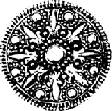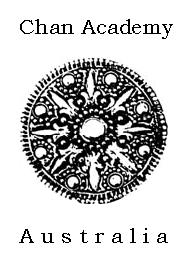

Digitising Buddha Dhamma Recordings
The Buddhist Discussion Centre (Upwey) Ltd., located in the city of Melbourne, Australia is a Regional Centre of the World Fellowship of Buddhists and an Associated Institution of the World Buddhist University. We are dedicated to the preservation and propagation of the Buddha Dhamma in the 21st century.
In 2005 we commenced a major project to develop a practical solution for preserving Buddha Dhamma recordings which have been made using audio tape cassettes. Audio cassettes generally have a reliable lifespan of 15-25 years after which the recordings can become difficult to understand, and in the case of possibly unique Dhamma Teachings, those Teachings would be lost and probably unrecoverable.
Our Centre's library, the John D. Hughes Collection, includes approximately 1000 Dhamma recordings on audio cassettes and as some of these were originally made 20 or more years ago we recognised the urgent need to find a method of long term preservation.
We sought expert advice for our project from ScreenSound Australia which is responsible for preserving Australia's national archive of film and sound recordings. ScreenSound Australia offered their help and expertise at no cost providing a summary of the types of equipment and methods available to preserve our audio cassette recordings and giving written recommendations specifically designed for our circumstances.
We have now written a report titled "Digitising Buddha Dhamma Recordings - A Report to Buddhist Organisations on the Urgency of Preserving Your Audio Cassette Tape Recordings of Buddha Dhamma Teachings" which describes the method provided to us by ScreenSound Australia that we have field tested for the past six months and found to be perfectly suited to the task.
We assume many other Buddhist organisations may have similar circumstances as ourselves regarding; the size of their audio cassette collection, a limited knowledge of the options for preservation, little or no knowledge of the equipment required and the process of preservation and limited financial resources.
Our report alerts Buddhist organisations about the limited lifespan of audio cassettes as a storage medium for recordings of Buddha Dhamma Teachings. The report provides "do it yourself" instructions about how those Dhamma recordings can be preserved through digitisation on a standard personal computer.
When published the report will be available for free download on the Internet, and we will also provide a CD ROM or hard copy free of charge for those who do not have to Internet access.
We believe it is very important that Buddhist organisations act quickly to preserve their cassette collections of recorded Dhamma Teachings. Many of these recordings were made fifteen to thirty years ago and contain Teachings of great Buddhist Masters who may since have passed away and if lost are irreplaceable.
Please find following the Introduction and Background sections of the report to illustrate what information we want to share with other Dhamma Centres.
The report will be published for free distribution during October 2005.
Buddhist Discussion Centre (Upwey) Ltd.
33 Brooking Street, Upwey, 3158, Victoria, Australia

Chan Academy is a registered trading name of the
Buddhist Discussion Centre (Upwey) Ltd.
33 Brooking Street, Upwey, Victoria, Australia, 3158
A.C.N. 005 701 806 A.B.N. 42 611 496 488
e-mail: wbu@bdcu.org.au
website: www.bdcu.org.au
Digitising Buddha Dhamma Recordings
A report to Buddhist Organisations on the urgency of preserving your audio cassette tape recordings of Buddha Dhamma teachings
1.0 Introduction
This report alerts Buddhist Organisations, who are not already aware, about the limited lifespan of audio cassettes as a storage medium for recordings of precious Buddha Dhamma Teachings made in the past fifteen to thirty years.
For many years Buddhist Temples, Libraries and Centres around the world have built up audio tape collections of Buddha Dhamma Talks or Teachings given by Buddhist Teachers.
In many cases the life of these audio taped recordings will have now reached their maximum limits. Audio tape recordings are subject to deterioration and have a predicted reliable life span of between 15 and 25 years only depending on the conditions of storage and other factors.
These recordings gradually deteriorate over time to a point where it becomes impossible to understand the contents and in the case of possibly unique Dhamma Teachings, those Teachings would be lost and probably unrecoverable.
Now is the time to find out what can be done to preserve these teachings before it becomes too late.
There are many methods of preservation available which are suitable for recordings which have not deteriorated too much.
We offer in this report a relatively low cost solution to Buddhist organisations to preserve your audio tape Dhamma collections. Once preserved, the main risk having been averted, this method will give the added bonus that your recordings can be duplicated onto CD ROM and also they can be put onto the Internet for free dissemination to a wide audience at very low cost.
The method we suggest is by no means the only option however it is designed to give a very satisfactory outcome without being too expensive or too complex.
We also provide details of software technology which can enable the sound quality of some poor quality recordings to be improved.
1.1 Background
Founded in 1980 by Master John D. Hughes, the Buddhist Discussion Centre (Upwey) Ltd is structured as a charitable self-help organisation. We are an Australian Regional Centre of the World Fellowship of Buddhists and an Associated Institution of the World Buddhist University.
The Buddhist Discussion Centre (Upwey) Ltd houses the John D. Hughes Collection which is a multilingual reference library that provides a comprehensive resource for Buddhist study and research. The collection includes about 1,000 audio cassette recordings of Buddha Dhamma Teachings. Some of these recordings were made in the late 1970's so it became urgent that we find a suitable and reliable method to preserve this Buddha Dhamma treasure.
The National Library of Australia and ScreenSound Australia who are experts in the field of film and audio recordings conservation and preservation were contacted for advice. ScreenSound Australia, which is responsible for preserving Australia's national archive of film and sound recordings, offered their help and expertise at no cost by providing a summary of the types of equipment and methods available to preserve our collection.
Subsequently, after considering our circumstances and available finance in detail, they made recommendations about appropriate choices we could make to achieve our objectives.
The equipment we purchased for the project required funding of less than Aus$2000 and our Members were invited to make donations towards this cost.
We assume many other Buddhist organisations may have similar circumstances as ourselves regarding; the size of their audio cassette collection, a limited knowledge of the options for preservation, little or no knowledge of the equipment required and the process of preservation and limited financial resources.
In this report we will not examine the various options available for preserving recordings made on audio cassettes nor will we be discussing the relative advantages and disadvantages of each of these options. There are many publications available on the Internet which provide this type of information.
Our report describes the method provided to us by ScreenSound Australia that we have field tested for the past six months and found to be perfectly suited to the task.
1.2 Digitisation
The name of the process we are presenting in this report to preserve audio tape recordings is called digitisation.
In digitisation the sound recording is transferred from the original cassette onto a personal computer. In order for the sound to be stored on a computer it has to be transformed from the format used on the cassettes (analogue) into a digital format which is the format used to handle data by computers.
There is an external device (sound card) which is connected between the tape recorder and the computer which transforms the recording from analogue format to digital format.
Once our recording is digitised in this way we can use computer software to "enhance" some poorer quality recordings to make the sound clearer. We can also copy our recordings onto a CD to give away to others or to store for long term preservation.
Most commonly used CD's again only have a predicted lifespan of 10 to 20 years depending on how they are stored. However, there are special CD's available, called Archive CDs, which will preserve the recording for 50, 80 or over one hundred years (depending on the quality purchased) provided they are stored under the right conditions.
It is also of value to point out that digital sound recordings can be put directly onto an Internet website and therefore be made available worldwide for persons to listen to or make their own copies